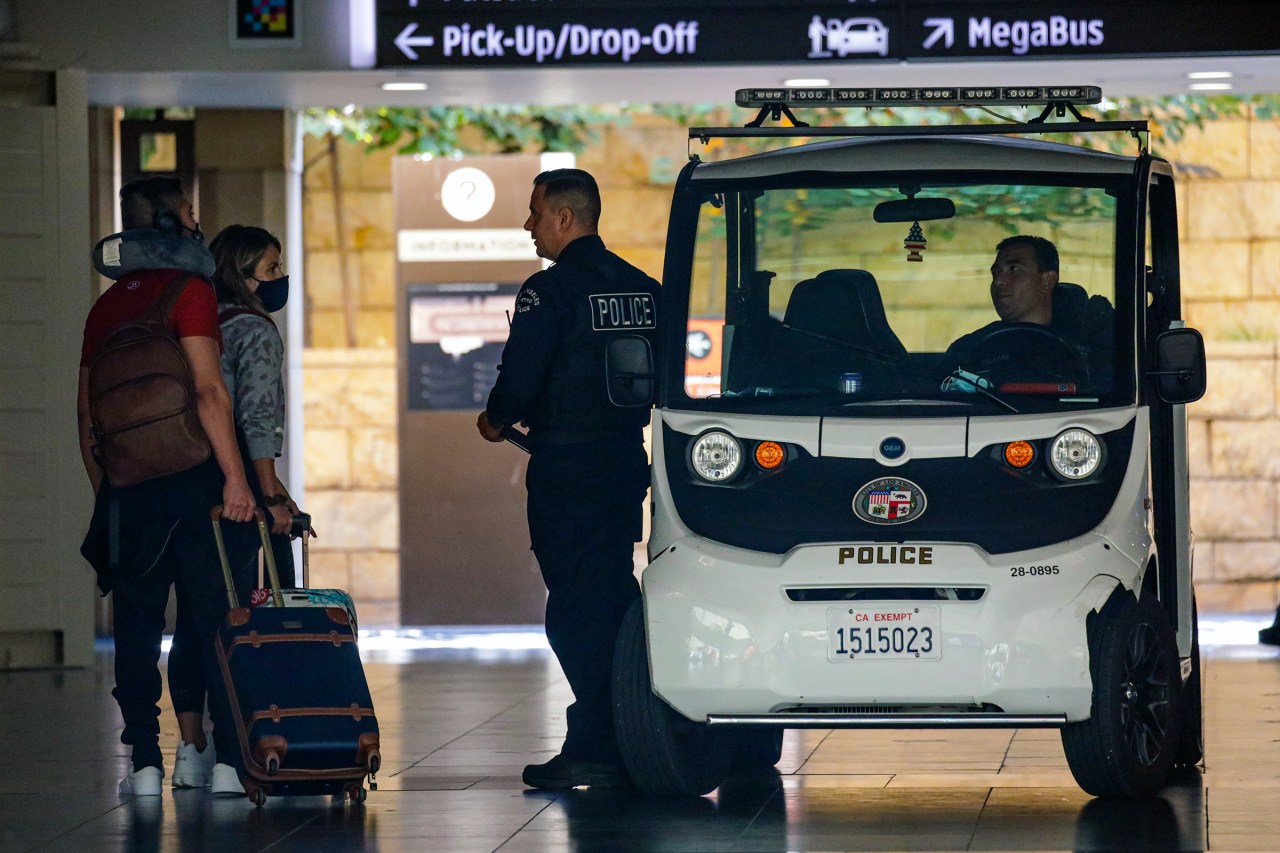More than a year after the Los Angeles Metro Board of Trustees approved a plan to explore creating its own transit police force, board members have moved forward with a plan to make it a reality.
The Los Angeles Police Department held a regular board meeting on Thursday to present a proposed plan for establishing a new internal public safety division.
After hearing hours of public input and statements from leaders of the three law enforcement agencies that currently contract with them to provide public safety services on Los Angeles Metro trains and buses, the Los Angeles Police Department decided it was best to begin the lengthy process of building a new police force from the ground up and terminating or modifying existing contracts with local law enforcement partners.
The vote passed unanimously with 10 votes in favor, but several Metro officials were absent.
LA Metro will undergo a five-year phased transition and establish a new Department of Transportation Community Public Safety.
The next step toward establishing TCPSD will include creating a “transition team” made up of experts on a range of public safety issues, including police, mental health social services and human resources.
LA Metro will also have to work with CalPERS, the California Public Employees’ Retirement System, to begin the process of recruiting officers to staff the new police force.
Los Angeles to Bay Area high-speed rail gets full environmental approval
The decision to create its own police force is historic and ambitious, but not unprecedented in Los Angeles or other major metropolitan areas.
The move brings Los Angeles in line with other jurisdictions, including the Bay Area, Massachusetts and Washington, D.C., that employ their own transit police.
 The undated photo, shared by LA Metro, shows two Southern California Rapid Transit Authority officers.
The undated photo, shared by LA Metro, shows two Southern California Rapid Transit Authority officers.
The Los Angeles Metro had its own transit police force from 1978 to 1997, which was created in response to a sharp increase in violent crimes throughout the transit system, especially against bus drivers.
Sound familiar?
At its peak, the Southern California Rapid Transit Authority operated a police force of more than 500 officers, making it the 10th largest law enforcement agency in California and the largest transit police force in the country.
The agency was eventually merged into the Los Angeles Police Department and the Los Angeles County Sheriff’s Department as part of a cost-cutting and political move, according to India Mandelkarn, a writer for Metro’s online blog, The Source.
Those law enforcement agencies and the Long Beach Police Department still guard the system, but their effectiveness has come into question compared to the multi-million dollar contract.
 Police officers patrol a Metro station in Los Angeles County on May 23, 2024. (KTLA)
Police officers patrol a Metro station in Los Angeles County on May 23, 2024. (KTLA)
A 2023 audit by the Office of Inspector General found that many officers assigned to patrol transit stations, trains and buses spend most of their time away from those areas, instead spending most of their time on their vehicles. The audit also found that more than half of transit-related 911 calls were responded to by officers not assigned to the Metro system.
Metro leaders criticize lack of law enforcement
Interim LAPD Chief Dominic Choi, Los Angeles County Sheriff Robert Luna and LAPD Chief Wally Hebeish appeared at Thursday’s meeting to answer questions from committee members and defend the work of officers on subway duty.
“We can’t be everywhere,” Luna said, referring to the size of Metro’s service area, “we’re doing the best we can to keep people safe, and our response times are very fast.”
Sheriff Luna went on to say that he believes it would be dangerous to build new law enforcement agencies from scratch during major sporting events in the coming years, including the 2026 FIFA World Cup, the 2027 Super Bowl and the 2028 Olympic and Paralympic Games.
“Now is not the time to experiment with new projects,” he said. “Public safety is too important for that.”
Metro officials have criticized the performance of contracted law enforcement agencies across the transit system, yet contracts with those large law enforcement agencies continue to be extended and renewed.
This has led many activists to call for the reinstatement of a dedicated transit police force in the hopes that the Los Angeles Metro would be able to better manage safety and improve the quality of life for passengers and drivers.
In 2024, many of the past challenges that led to the creation of in-house policing remain — violent crimes against passengers and transit drivers — but new problems plaguing Los Angeles Metro include the rise of deadly drugs like fentanyl and a large increase in the city’s homeless population, Mandelkarn wrote.
The decision to try again Thursday marks the first step in what will likely be a lengthy and possibly contentious process.

